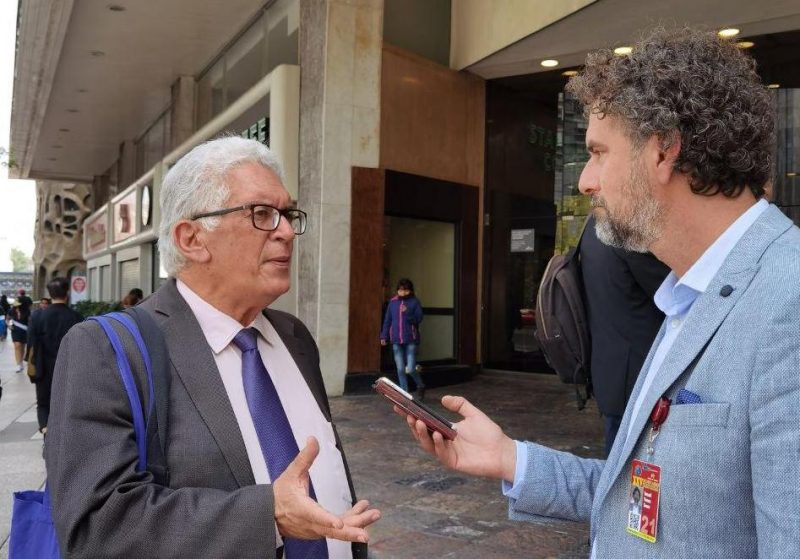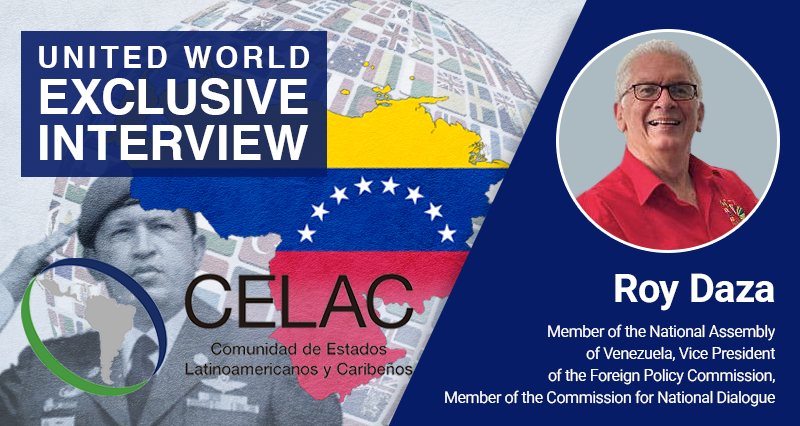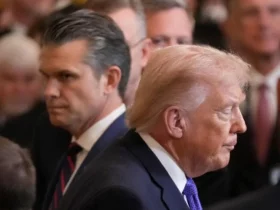The Bolivarian Republic of Venezuela is heading towards elections that will be held on November 21. Some 21 million voters will elect 23 state governors, mayors, and municipal councils. Venezuela is a federal republic.
The opposition has been boycotting the elections since 4 years, but this time, oppositional parties have decided to take part. A dialogue is established between government and opposition since August 14.
Two days ahead of the elections, President Maduro invited the population to take part in the elections.
I have spoken with Roy Daza about electoral preparations, the dialogue with the opposition, mulltipolarity and the disputed future of the Organization of American States (OAS).
Daza is member of the National Assembly for the United Socialist Party of Venezuela (PSUV), member of the Foreign Policy Commission and member of the Commission for National Dialogue.
Elections of 21N
What precautions did you take to assure that the elections of governors and mayors in 2021 take place in an orderly manner?
First of all, this is the 29th election in 22 years that the Venezuelan government organizes. The Bolivarian Movement has won 27 of these elections.
What we offer as guarantees for an orderly election are facts, not words. Fact is, that my country holds the record worldwide in national elections. Fact is also, that not even the most radical fractions of the opposition have during the years brought forward any concrete accusation or case against our electoral process. Quite the contrary, the whole world celebrates our elections as one of the most democratic ones.

The elections were in the past attacked by those sectors that were also involved in the assassination attempt against President Maduro and had organized the transfer of mercenaries into Venezuela. Fractions that were part of a coup d’etat attempt and the military invasion against our country. These are the fractions that attack our democracy whenever there are elections in Venezuela, because these are neo-fascist fractions, which do not believe in elections, democracy or popular sovereignty.
“The initiative, mobilization capacity, public opinion influence and electoral base of the progressive, leftist and socialist forces – that is the news in Latin America”
But this no news, there have always been such fractions in Latin America. What’s new is the following: The progressive, leftist, socialist forces of Latin America today have a political initiative, have a popular mobilization capacity, a media force and influence in the public opinion and a capacity concerning votes, which they had not 20 years ago.
The new thing is not that there is a Right, an extremist Right. The new thing is the existence of progressive governments, the new thing is that our political parties united in the Sao Paolo Forum constitute a moral, ethical force of first degree in our continent.
“Dialogue with opposition has been halted for the moment”
How is the dialogue with the Venezuelan opposition advancing?
The dialogue with the opposition is not limited to the talks here in Mexico. There are three dimensions of the dialogue: The dialogue with the main political parties of the opposition, the dialogue with various social sectors in the country, from the trade unions to the universities, and the other is the dialogue with fractions of the extreme right. The latter has been going on in Mexico, and until now, it has been pretty successful.
In this dialogue, which has started on August 13, very important joint declarations have been made about the political reality. This means for my country the defense of the country and also the struggle for those resources, which have been robbed and usurped by fascists, which claim to be a parallel government.
We have been working on this topic, but with the situation that evolved around Alex Saab (Colombian-Venezuelan businessman detained in the United States on accusation of money laundering, UWI), the talks have currently stopped.
We will now evaluate the new situation and take a decision. Both sides, those of the opposition that take part in the negotiations and the representatives of the government of President Maduro will evaluate and decide on whether to continue the talks.
How do you describe the current position of the US towards Venezuela?
Our country faces since years a fierce economic blockade by the US. They are trying to force us to our knees by starving us out. But I think that it has become clear for the peoples of Latin America, Europe and Asia, that we will not kneel down.
Does Venezuela consider the emerging multipolar world as an opportunity in that context?
Multipolarity has always been our policy. The historic leader of our revolution, Commandante Chavez has always stated that the opening to the world is the balance of the world. The balance of the world, which is also a concept of Simon Bolivar, is based exactly on the notion that there are different, multiple centers. A pluripolar world.
“World is marching towards new system of international relations – inevitably”
We think that the world is marching towards that end. There are people who want to turn back history, always have been. But I think it is inevitable that world marches towards a new system of geopolitics, and a new, pluralistic and democratic order in international relations.
What is the future of Latin American integration? There is for instance a lot of debate about the Organization of America States (OAS). The Mexican President criticized the institution and demanded its substitution.
We have a very specific view on the OAS, because Mr. Luis Almagro (Secretary General of the OAS, UWI) has been part of attempts to invade our country by military force. He has been part of all subversive acts against the government of President Maduro. And as a certain fraction within the OAS has taken that stance, we have cancelled our membership in the organization. We are not part of the OAS anymore.
And we join the proposal of Lopez Obredor, President of Mexico, to seek to establish a new type of relations, relations based on solidarity and equality. A new type of political relationship between North America on the one side and Latin America and the Caribbean on the other.
Can the CELAC be the new ground for such new relations?
The CELAC reflects a new political reality on the continent. It is result of an objective reality. First of all, it is connected to the productive capacity of our countries. It is connected to the broad and huge market, which Latin America represents.
And it is connected with a political fact: Latin America has gone through a political, social and ideological earthquake. Following this shake up, the idea of Latin American unity has returned to the continent’s agenda.
There is much talking about integration. Do you think that this integration also has a dimension concerning integration of production?
This has happened already to a certain degree, there were some approximations. But pro-imperialist fractions of the Right have sabotaged and disrupted this process.
But this process of integration of production will continue. Because the only objective way to solve the problems of our economies is cooperation – our countries’ cooperation in production, commerce and technology.
“Unite against imperialism and neoliberalism and defend the banner of democracy, which is today in the Left’s hand”
Where do you see the priorities for international cooperation?
Despite of national differences, we consider the following issuesas common topics for all the revolutionary, Leftist and Progressive parties in the world. Topics, which are at the heart of the revolutionary struggle today.
First topic is how to engage the Coronavirus in a humanitarian way. The second topic is the foreign debt, which affects practically all Latin American countries, but also some European countries. Within the Latin American is the third topic, which is the integration of all leftist and progressive forces of the continent as forces of democracy against rightist attempts of coupism.
Today, the Left, the revolutionary movement carries the banner of democracy. And as we carry this banner, we defend the democracy. This forces us to unite despite some political differences. We have to find the common positions despite our differences in order to unite against the North American imperialism and against the current dominant ideology of neoliberalism.

















Leave a Reply